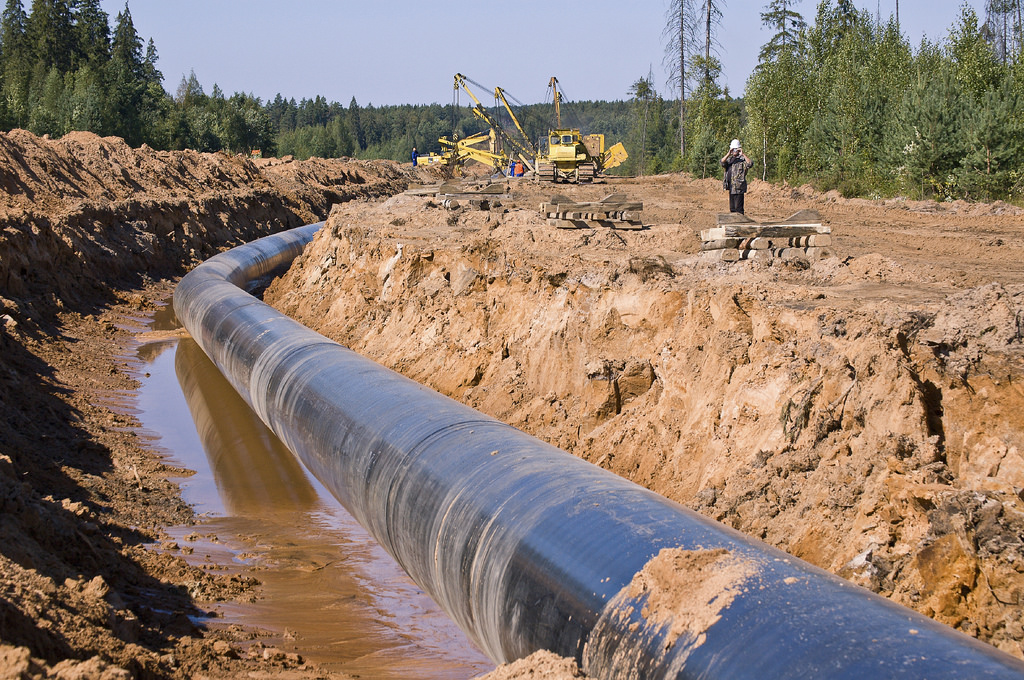The tree-sitters have come down, and all the permits have been issued by state and federal agencies. Bulldozers and chainsaw crews are already clearing sections of the the Mountain Valley Pipeline and Atlantic Coast Pipelines.
Is there anything that can stop them?
Actually, yes.
Governor Ralph Northam has the power to halt pipeline construction, but so far, he has chosen not to act. Instead, in April, Northam issued an executive order that allowed the pipelines to proceed through Virginia.
Originally, Virginia’s Department of Environmental Quality had planned to conduct a project-specific reviews of each pipeline, called a 401 permit review. This would have required regulators to analyze the pipelines’ impacts on every stream and body of water that they cross.
However, regulators later decided to skip the 401 permit review and instead use a blanket Nationwide 12 permit issued by the U.S. Army Corps of Engineers to approve the entire process. Most of the streams crossed by these pipelines were never properly analyzed to determine the health and environmental impacts of pipeline construction.
Despite the inadequate review process, and despite the agency’s acknowledgment that they have never reviewed a project this large, Governor Northam has continued to stand by the review process.
The truth is this: Governor Northam has the power to halt the pipelines right now. The Federal Energy Regulatory Commission (FERC) is the primary authority over interstate gas pipelines, but states also have the authority to approve or deny certain permits under the federal Clean Water Act. FERC’s role does not supercede state power when it comes to stopping projects that pose a threat to the state’s water quality. In August, the Second Circuit Court of Appeals upheld the state of New York’s denial of a Clean Water Act Section 401 permit for the Constitution Pipeline.
Northam could do the same in Virginia. At the very least, Northam could direct the Department of Environmental Quality to suspend the 401 certification based on the Corps’ blanket permit while it conducts a stream-by-stream analysis. Such an analysis will likely reveal many adverse effects of pipeline construction on drinking water sources, fishing, swimming, paddling, boating, and other uses across Virginia.
Just last week, Governor Northam’s own Advisory Council on Environmental Justice recommended “a moratorium on new gas infrastructure in the Commonwealth and a stream-by-stream assessment of the impact of both the Atlantic Coast and Mountain Valley pipelines.”
So why has Northam refused to invoke any of his power to stop these pipelines? Perhaps because doing so would require his going up against Dominion Power, the state’s biggest political campaign donor. Northam himself has accepted campaign donations from Dominion (over $199,000 over the course of his career) and even owns shares in their company. Dominion has invested heavily in Virginia’s politics and lobbied hard to ensure that their projects are approved and construction is expedited quickly before the public can intervene. But Dominion is not the only energy company that is funding Northam. The Governor has also accepted over $20,000 from EQT, the company behind the Mountain Valley Pipeline, and $10,000 from Marcellus Gas Infrastructure.
In April, Northam repeated a common refrain of his campaign speeches: “I believe that science should dictate whether the pipelines can be built safely and in an environmentally sound way.” Yet scientists have not been allowed to conduct stream-by-stream analyses of the pipelines’ impacts on health and water quality.
The Department of Environmental Quality was created in order to protect the health and wellbeing of the citizens of Virginia. Instead of bending the rules and modifying regulations for big corporations, state agencies should be enforcing and strengthening their regulations. Governor Northam has not only caved to corporate interests, but has acted as an adversary to the state by putting the interests of a few over the needs of the entire Commonwealth.
But the governor can still make things right. He can fulfill his campaign promises to require stream-by-stream analysis of proposed pipeline waterbody crossings.
Northam can revoke 401 Water Quality Certification for both the Mountain Valley and Atlantic Coast Pipelines today.
If you enjoy or use any water bodies that may be affected by the Mountain Valley Pipeline or Atlantic Coast Pipeline, the State Water Control Board (SWCB) needs to hear from you before the new deadline, 11:59pm, June 15, 2018.
PLEASE take 5 minutes to do the following, and share these instructions.
1. Send an email about the MVP to [email protected].
2. Provide your name, mailing address, and telephone number.
3. Choose one of two protected uses: Enjoyment (swimming, fishing, etc.) or other use of un-degraded water (irrigation, livestock watering, etc).
4. Explain your concern that the US Army Corps of Engineers Nationwide Permit 12 (aka “NWP 12”) is insufficient to protect a specific wetlands or stream that would be crossed by MVP.
5. Request a stream-by-stream analysis to uphold Virginia’s Water Quality Standards (WQS).








